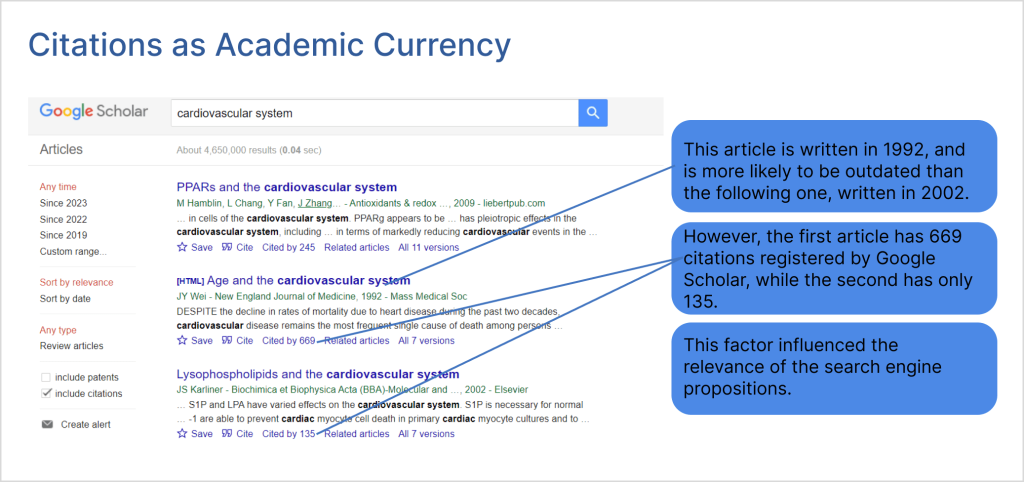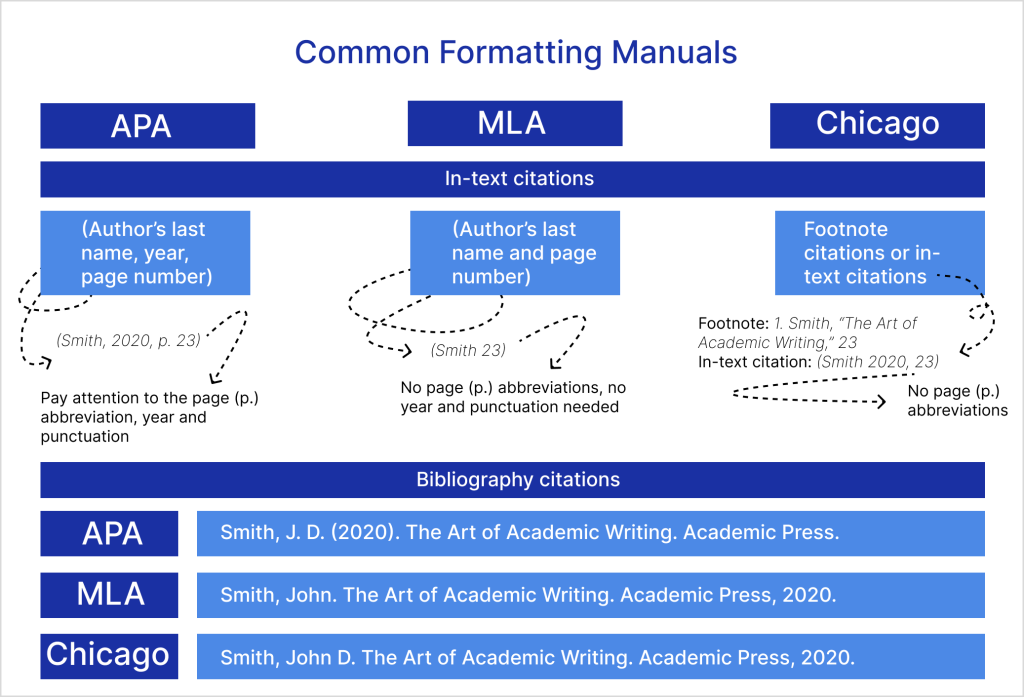“Why is it important to cite your sources?” – you may not realize the importance of citing books and articles being a college or university student. It is a practice that transcends disciplines, from the arts to the sciences, and it serves as the backbone of any well-crafted paper or report.
In this expert guide, we delve into the importance of citing sources in academic writing. From a proper format like APA, MLA, and Chicago to the significance of a works cited list, we will explore the critical role citations play in upholding academic integrity standards and supporting the credibility of your research.
In the realm of academia and research, citing sources is a fundamental practice that underscores the integrity of scholarly work.
Why Is It Important That You Cite Your Sources?
Citing sources is an essential aspect of academic writing that goes far beyond the mere inclusion of a bibliography or reference list. It is the act of acknowledging the intellectual contributions of others in your work, giving credit to their ideas, and demonstrating the reliability and credibility of your own research. Why is citing sources important? The answer to this question lies in several key facets.
Why Are Citations Important?
Including and citing someone else’s opinion in your work is equivalent to entering the scientific community. There are no topics left untouched by scientific works, studies, books, or reflections. It would be foolish to ignore the achievements of the pioneers before you. Hence, there are two main reasons for the importance of citations.
The importance of citing sources: your personal benefits of citations
- Citations serve as a testament to the validity of your claims.
They act as the foundation upon which your arguments and conclusions are built. When you cite articles, you provide a trail for readers to follow, enabling them to verify the information you present. This transparency in your research process builds trust with your audience and allows them to assess the quality of your sources.
For example, in a scientific research paper, a statement regarding the effectiveness of a new drug might be backed by a citation to a peer-reviewed clinical trial published in a reputable journal
- Strengthening your argument
Reference list not only validates your claims but also enhances the persuasiveness of your argument. They show that your ideas are rooted in a broader body of knowledge, making your argument more compelling and convincing through your bibliography.
- Building credibility
Credibility is paramount in academic writing. Properly cited reputable sources demonstrate that you have conducted thorough research and are well-versed in the existing literature on your topic. References, in turn, enhance your own credibility as a scholar.
- Demonstrating academic responsibility
Reference lists are a fundamental part of academic responsibility. They show that you take your role as a student or researcher seriously and are committed to upholding the standards and ethics of the academic community.
- Citations are not merely a technical requirement of academic writing
They play a pivotal role in the advancement of knowledge and the ongoing dialogue within scholarly communities. Each citation acts as a signpost guiding the reader to the wealth of information that underpins a particular assertion. This interconnected web of references forms the backbone of academic progress.
- Citations as academic currency
In the academic world, citations are often seen as a currency of information. The more citations a work receives, the more influential it is considered within its field. This recognition serves as motivation for researchers to produce high-quality, innovative, and well-documented work.
For example, a guide study on climate change mitigation strategies might reference the Intergovernmental Panel on Climate Change (IPCC) reports.

That is why citations are important in academic essays and other types of papers.
Importance of citing sources: meeting academic standards
Why is it important to cite your sources properly? Citing sources is not just a matter of following a set of rules; it is a reflection of your commitment to academic rigor and intellectual honesty.
- Avoiding plagiarism
Plagiarism is the act of presenting someone else’s work, ideas, or words as your own without references, and it is a grave breach of academic integrity. Proper reference is the most effective way to avoid unintentional plagiarism. When you attribute the ideas and words of others correctly in a bibliography, you demonstrate your respect for their intellectual property and prevent accusations of academic misconduct.
- Why should citations be included in a paper or report?
Citations serve to recognize the efforts and contributions of other researchers and authors. Without proper attribution, academic discourse would be mired in a web of unacknowledged ideas, hindering the progress of knowledge.
For instance, by citing the works of renowned historians like Jacob Burckhardt and Erwin Panofsky, the author acknowledges the pioneering research that laid the foundation for understanding this historical period.
- Providing additional context
References offer the opportunity to explore the background and context of your research. By referencing related works, you allow readers to deepen their understanding and engage more thoroughly with your content.
- Tracing the evolution of ideas
References also offer a fascinating glimpse into the evolution of ideas over time. By following the lineage of bibliography citations, researchers can track how a concept or theory has been developed, refined, or even challenged.
- Acknowledging diverse perspectives
Another vital aspect of references is the acknowledgment of diverse perspectives. In academia, there is rarely a single, universally accepted viewpoint on any topic. Citing references allows you to engage with different schools of thought and incorporate various perspectives into your work. This not only enriches your research but also encourages critical thinking and a broader understanding of complex issues.

Now you know why is it important to cite sources in your academic papers in bibliography sections.
Why Do Researchers Cite?
Why do authors cite sources when writing papers? Researchers cite information from such sources as articles when writing papers for a multitude of reasons. Firstly, citations lend authority and credibility to their work. Academic research often builds upon existing knowledge, and by citing established sources, researchers demonstrate that their work is grounded in a solid foundation of previous scholarship. They guide their work based on the existing research to support ideas.
Secondly, citing references helps readers trace the origins of ideas and information. This traceability is crucial for those who wish to delve deeper into a topic or assess the reliability of a particular claim. Moreover, bibliography citations provide a means of cross-referencing and validation.
What Does a Citation Look Like?
Citations come in various formats, depending on the format guide you are instructed to follow. The most common citation styles include APA, MLA, and Chicago, each with its unique guide for citing sources.
Typical citation elements
A citation typically includes the following elements:
- Author(s). The individuals or entities who create the content.
- Title of the Source. The name of books, articles, website, or other mediums from which the information is drawn.
- Publication Date. The date when the source was published or last updated.
- Publisher. The organization responsible for making the source available.
- Page Numbers. For books and articles, the specific pages or range of pages being cited.
- URL. For an online source, the website address that leads directly to the source.
In academic writing, these elements are arranged in a specific order, and punctuation rules vary between citation styles. Therefore, it is crucial to consult the appropriate style guide when you create citations because APA significantly differs from MLA or Chicago.
Citation examples in the three most typical manuals
To illustrate the importance of citing a source, let’s explore a few citing sources examples in different citation styles in this guide:
- APA Style
In APA style, books citation might look like this:
Smith, J. D. (2020). The Art of Academic Writing. Academic Press.
For journal articles, it would resemble:
Johnson, A. M., & Williams, L. R. (2019). The Impact of Citing Sources on Academic Integrity. Journal of Scholarly Research, 45(3), 123-136.
APA is commonly used for social sciences and the education field. MLA is the format for humanitarian subjects, and Chicago is a good format for history papers.
- MLA Format
In MLA style, a book citation should be formatted as follows:
Smith, John. The Art of Academic Writing. Academic Press, 2020.
And for journal articles:
Johnson, Alice M., and Laura R. Williams. “The Impact of Citing Sources on Academic Integrity.” Journal of Scholarly Research 45, no.3 (2019): 123-136.
- Chicago Style
In Chicago style, books citation might appear as:
Smith, John D. The Art of Academic Writing. Academic Press, 2020.
And journal articles would follow this citation pattern:
Johnson, Alice M., and Laura R. Williams. “The Impact of Citing Sources on Academic Integrity.” Journal of Scholarly Research 45, no. 3 (2019): 123-136.
These examples of cited sources showcase the variety of citation styles and the consistent need to provide comprehensive information about the source being cited.

The works cited list. Why do you need one?
Why is it important to include a works cited list as part of a presentation? You can discover the reason in this part.
- A Comprehensive Record. A fundamental component of proper citation is the inclusion of a works cited list, often referred to as a bibliography or references page. This list provides a comprehensive record of all the sources you consulted during your research, ensuring transparency and accountability. It also serves as a valuable source for both you and your readers, as it facilitates further exploration of the topic.
- Adherence to Citations Styles. As mentioned earlier, different academic disciplines and publications require specific citation styles such as APA, MLA, or Chicago. Adhering to these styles is essential, as it ensures consistency and clarity in the presentation of your sources.
- The Machine Age and Citation Generator. In today’s digital era, technology has revolutionized the reference creation process. Any citation generator and reference management software have simplified the task to create accurate citations in various styles. Such a generator and citation machine not only saves time but also reduces the risk of errors. For instance, start with the Bibliography generator, and never worry about incorrect citations in your life. You may also use the following citation machine for your bibliography and works cited list: Citation Machine.
- Citations Beyond Text. Images, Movies, and Social Media. While text-based citations are the most common, it’s important to note that citations extend beyond written content. In the age of multimedia, website richness, and social media, it is equally crucial to attribute images, movies, tweets, and other non-textual sources cited. Properly crediting images, movies and other sources upholds the principles of intellectual property and copyright law.
The importance of citing books and articles cannot be overstated in academic writing and research. It is a practice that upholds academic integrity, acknowledges the contributions of others, and strengthens the credibility of your work. Whether you are a student, researcher, or author, citing sources is a fundamental responsibility that should be embraced with diligence and care. You may utilize a citation generator to craft citations by yourself.
By understanding the significance of citations and adhering to the appropriate citations style, you contribute to the growth of knowledge and the maintenance of scholarly standards in your field. So, why is it important that you cite your sources? The answer lies in the very essence of academic inquiry and intellectual honesty.